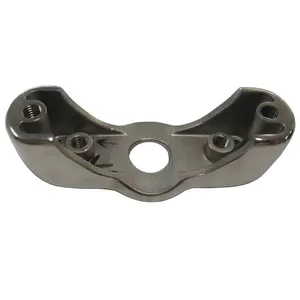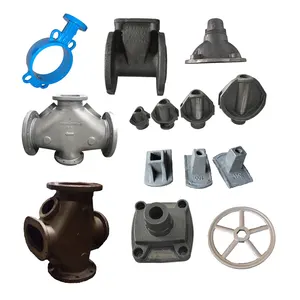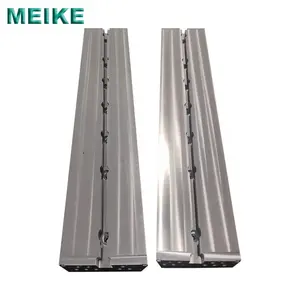Introduction to Shaft Casting
Shaft casting is a specialized manufacturing process used to create cylindrical components with precision and efficiency. This technique is essential in various industries, including automotive, aerospace, and machinery manufacturing. The process involves pouring molten material into a mold to form the desired shape as it solidifies.
Types and Applications
There are multiple types of shaft castings, each suited to different applications. From simple straight shafts to complex geometries with varying cross-sections, the versatility of this process allows for the production of components that meet specific industry requirements. These castings are integral to the operation of equipment in sectors such as power generation, heavy-duty industrial machines, and transportation systems.
Materials and Features
The materials used in shaft casting processes are chosen based on the required properties of the final product, such as strength, durability, and resistance to wear and corrosion. Common materials include various grades of steel, iron, and non-ferrous alloys. The features of shaft castings are characterized by their dimensional accuracy and the ability to withstand high mechanical stresses, making them suitable for critical applications.
Manufacturing Advantages
The manufacturing of shaft castings offers several advantages. The process is capable of producing components with a high degree of complexity without compromising the integrity of the design. Additionally, the efficiency of the casting process allows for the production of high volumes within a relatively short timeframe, which is beneficial for meeting the demands of large-scale industrial projects.
Durability and Resistance
Durability is a hallmark of well-produced shaft castings. The use of robust materials in their creation contributes to their longevity and ability to perform under strenuous conditions. Furthermore, these castings are designed to be resistant to various forms of degradation, including corrosion, which is achieved through the selection of appropriate materials and manufacturing techniques.
Design and Customization
The design and customization of shaft castings are critical to fulfilling the specific needs of different applications. The flexibility of the casting process allows for a wide range of sizes and shapes, ensuring that each casting meets the precise specifications required for its intended use. This adaptability is one of the key reasons why shaft casting remains a preferred method for producing complex cylindrical components.

















































 浙公网安备 33010002000092号
浙公网安备 33010002000092号 浙B2-20120091-4
浙B2-20120091-4